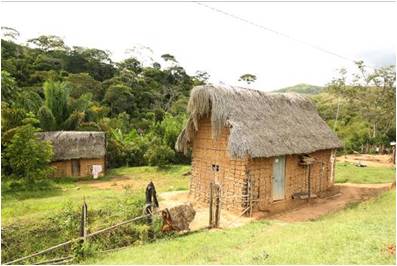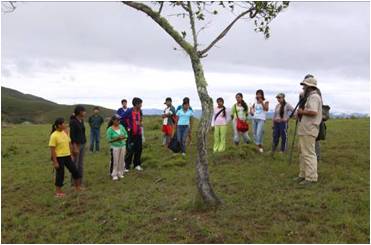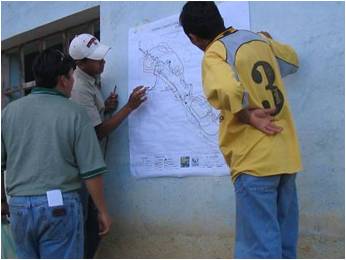
Strengthen the capacity of people Leco Apolo to control its territory – Bolivia.
The Central of Indigenous People Leco de Apollo (CIPLA) represents 21 communities covering a population of approximately 4,000 inhabitants. Its territory largely overlaps the Madidi National Park, one of the most important protected areas in Bolivia which has a global significance for its level of biodiversity.
The CIPLA’s mission is to “rebuild and enhance the identity of the nation Leca, through forming leaders to consolidate their ancestral territory and to ensure respect for their legitimate constitutional rights, and through creating better living conditions : health, education and housing for the population thanks to the sustainable use of their territory’s natural resources “. After many vicissitudes in the past, since 2007, the people Leco de Apollo carries forward the process of developing his Life Plan. However, this has not protected this people from an imminent start of hydrocarbon activities in areas that overlap with its territory. These activities were approved without due process of consultation and consent.
The project supported by the Foundation PKF will provide technical suport to the organization and communities of CIPLA, thanks to the training of an indigenous task force capable of confronting in a relevant and well documented way the processes of exploration and exploitation of hydrocarbons that may occur in their territory.
The main problem to be solved with this initiative is that the indigenous peoples of the North of La Paz have not had previous experience in dealing with the problems generated by the oil and gas activities in their territories. In order to guarantee territory’s stability, people’s health and the reinforcement of its representative organizations, it is vital to ensure the availability of sufficient, relevant and transparent information for decision making. What is required is the formation of a critical mass of local technicians trained in the subject of oil and in the areas of legal norms and the rights of indigenous peoples. These technicians should be capable to identify, assess and monitor the socio-environmental impacts of hydrocarbon activities and to adress their technical characteristics as well as to cope with all the issues relevant to the people. The project provides information to the communities, creates opportunities for exchange and reflection and supports the creation of this task force of at least 25 indigenous local leaders and rangers well informed about hydrocarbons. All this is essential to prevent the conflicts that may arise in the relationship between development, conservation and indigenous rights. This is a topic which, in recent years, attracts great attention and care in Bolivia.






I do not know how things now are but I support this initiative. For some years in the early 2000s I worked with communities around Apollo where the Leco people had relatively little influence. This project is then long overdue. A central concept to all external interventions in indigenous peoples’ territories is the application of Free, Prior and Informed Consent as defined by the United Nations (see http://www.fao.org/indigenous-peoples/our-pillars/fpic/en/). I hope that this has been used in the case of hydrocarbon activities especially given their negative contribution to climate change. Whatever happens, the local people should benefit.